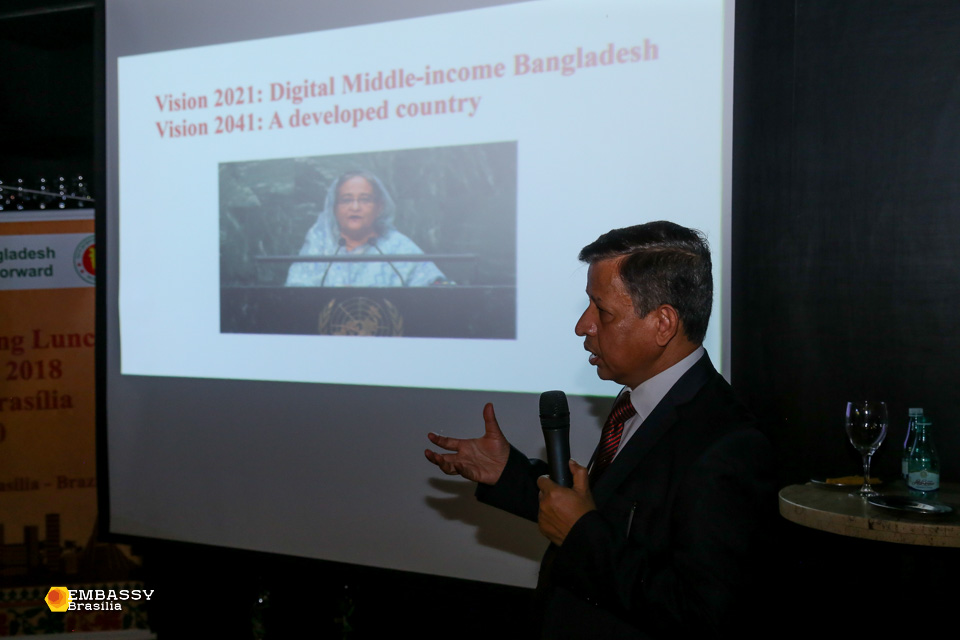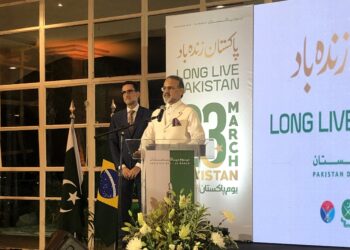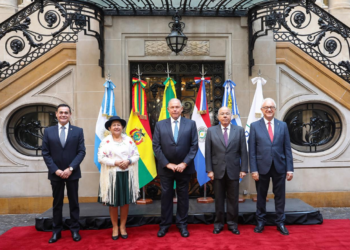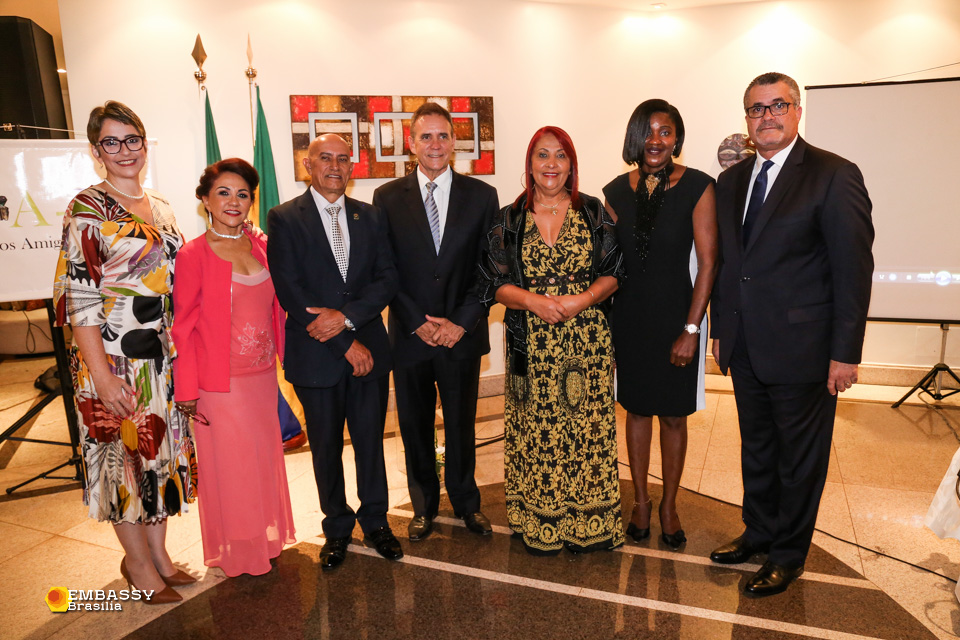
Liz Lôbo
Fotos: Eliane Loin
“From the devastation of 1971, with the War for Liberation, to a developing country in 2018”. This was the theme of the seminar held by the Bangladeshi Embassy for journalists, diplomats, and other guests, on April 6, at Churrascaria Fogo de Chão, em Brasília. Rahman addressed the goals for the country until 2041, highlighted important aspects of the history and culture of that nation.


Minister of the Itamaraty, Ary Quintela, praised the efforts of Bangladesh to developed
Ranked the 34th place in the WEU ranking, Western European Union, that nation led the countries of South Asia in gender equality for the third consecutive year, ranking 47th amongst the 144 emerging nations of the Sive Development Index (2018) – well ahead of their peers. According to the Goldman Sachs Financial Institute, Bangladesh among the “next eleven” countries are likely to emerge as economic successes. JP Morgan listed the country among the “Emerging Five”.

Describing graduation as a “milestone,” Guterres said: “Strong vision, national leadership and sound policies and programs will be crucial as Bangladesh strives to become a middle-income country and implement Agenda 2030 for Sustainable Development.


Profoundly disappointed with the Pakistani rulers, Sheikh Mujibur Rehman, on March 7, 1971, appeals to the people of Bengal to prepare for the struggle for independence – still retaining faith in a political settlement. By his struggle he became known like Bangabandhu, Father of the Nation. Rehman was the first president of Bangladesh assassinated in a military coup in 1975 and father of the current Prime Minister, Sheikh Hasina.
Bangladesh entre os países prósperos
Embaixador Zulfiqur Rahman apresenta painel sobre a história, os conflitos, as conquistas e as metas da nação que acabou de ser elevada ao estatus de pais em desenvolvimento pela ONU

Segundo dados apresentados pelo embaixador, o governo bengalês estima que 12,9 milhões de empregos adicionais serão criados até 2020. O diplomata apresentou ainda outro dado positivo do país. “A Taxa de pobreza caiu de 38,4% em 2006 para 22,4% em 2017”, anunciou Rahman. O avanço da área de tecnologia de informação também foi mencionado por ele. “O tamanho total do mercado de TIC (Tecnologia da Informação e Comunicação) em Bangladesh foi de apenas US $ 26 milhões em 2008, que agora chegou a US $ 600 milhões”, relatou. São cerca de 1,3 milhões de profissionais de TIC e 10.000 empreendedores.
Classificada em 34º lugar no ranking do WEU, Western European Union , aquela nação liderou os países do sul da Ásia em igualdade de gênero pelo terceiro ano consecutivo, ocupando a 47ª posição entre as 144 nações emergentes do Índice de Desenvolvimento da Sive (2018) – bem à frente de seus pares.De acordo com o Instituto Financeiro Goldman Sachs, Bangladesh entre os “próximos onze” países que provavelmente surgirão como sucessos econômicos. Já o banco JP Morgan listou o país entre os “Cinco Emergentes”.
ONU– A melhor notícia, no entanto, foi a reclassificação do país pela Organização das Nações Unidas (ONU). O embaixador exibiu uma fala do Secretário-geral da entidade, Antônio Guterres. “Estou muito satisfeito por Bangladesh ter cumprido os critérios de graduação dos países menos desenvolvidos do mundo. Este é um sinal claro de que está construindo uma economia inclusiva e próspera, com o compromisso de tirar milhões de pessoas da pobreza e da fome”, disse Guterres.
Descrevendo a graduação como um “marco”, Guterres disse: “Visão forte, liderança nacional e políticas e programas sólidos serão cruciais à medida que Bangladesh se esforçar para se tornar um país de renda média e implementar a Agenda 2030 para o Desenvolvimento Sustentável.
História – Bangladesh conquistou a independência em 16 de dezembro de 1971 – após a sangrenta Guerra de Libertação. Antes, na noite de 25 de março do mesmo ano, as forças armadas do Paquistão iniciaram a Operação Searchlight – cometendo um dos maiores genocídios da história da humanidade. Três milhões de bengalas desarmadas e civis foram martirizadas pelos militares paquistaneses em questão de apenas nove meses. No dia 14 de dezembro, também foram mortos brutalmente centenas de professores universitários, médicos, engenheiros, arquitetos, escritores, artistas, pintores, cineastas.
Profundamente desapontado com os governantes paquistaneses, Sheikh Mujibur Rehman , em 7 de março de 1971, faz um apelo ao povo de Bengala para se preparar para a luta pela independência – ainda mantendo a fé em uma resolução política.Por sua luta, ele ficou conhecido como Bangabandhu, Pai da Nação. Rehman foi o primeiro presidente de Bangladesh assassinado em um golpe militar em 1975 e pai da atual primeira-ministra, Sheikh Hasina.















